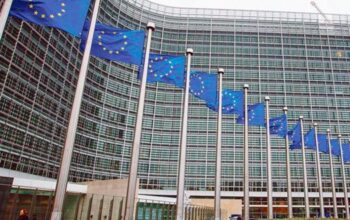On May 8, the Government of Republika Srpska issued its Ninth Report to the UN Security Council. The executive summary is below.
Introduction and Executive Summary
Republika Srpska (RS), a party to all of the annexes that comprise the Dayton Accords, respectfully submits this 9th Report to the UN Security Council. The report examines developments since the 8th Report and outlines the RS government’s views on some key issues facing Bosnia and Herzegovina (BiH).
The overriding goal of the RS Government is to improve the economic condition of its citizens. To accomplish this, the RS is pursuing economic and judicial reforms, advancing European integration, and protecting the decentralized BiH structure set out in the Dayton Constitution. The RS Government serves all its people. The RS’s cabinet includes members of all of BiH’s constituent peoples, and the RS institutions work to ensure that non-Serb ethnic groups are respected. A recent example of this was a February 2013 RS Constitutional Court decision ruling that the coats of arms and flags of two RS municipalities were unconstitutional because their inclusion of Serb symbols put Bosniaks and Croats “in an unequal position.”
The RS is justly proud of its well established democratic political system. RS elections, as confirmed by international observers every two years, are fair and competitive. Changes in party control at the Entity and local levels are peaceful, orderly, and routine, as demonstrated most recently in the October 2012 local elections. In the 17 years since the Dayton Accords, the RS Prime Minister’s office and Presidency have each switched party hands four times.
As the RS’s new Prime Minister, Ms. Željka Cvijanović, told the RS National Assembly on 12 March 2013, the new cabinet will fight for “preserving every job, fiscal and social stability, reforming the business environment and creating space for foreign and domestic investments, and all this in an effort to rehabilitate the principles of social justice.”
What the RS asks of the international community is respect for BiH’s sovereignty and Constitution and cooperation with local efforts to move the RS—as well as BiH as a whole—forward toward a prosperous, European future.
I. The status of BiH reform
BiH’s leaders made important progress in the first half of 2012, including the enactment of laws on the census and state aid and agreements on longstanding controversies like state and military property. But when relations between the two largest Bosniak parties (SDP and SDA) broke down a year ago, progress at the BiH level came to a sudden stop.
Nevertheless, in late November, the parties that make up BiH’s partially reconstituted Council of Ministers came together, on their own initiative, and agreed on a wide-ranging agenda for reform. The agreement includes important and urgent measures, such as creation of a coordination mechanism for EU integration talks. Unfortunately, a bitter and protracted dispute over formation of a new Government of the Federation of Bosnia and Herzegovina (FBiH)—again between the Bosniak SDP and SDA parties—has stalled implementation of the agreed reforms. This is the second time in less than a year that intra-Bosniak struggles have derailed progress. The RS is hopeful that the current impasse in the FBiH will end soon so that legislative progress at the BiH level may resume.
II. BiH must retain the decentralized structure of the Dayton Constitution.
Decentralized forms of government have had great success in improving administrative efficiency, and they are most successful in countries that, like BiH, have deep regional differences. It is BiH’s decentralized structure that has made it possible for the RS, unlike the FBiH, to have a functional government and to enact far-reaching economic reforms to encourage job creation. Another reason BiH must retain its decentralized structure is the inefficiency, dysfunction, non-transparency, irrationality, and unaccountability of BiH-level institutions. Moreover, as the EU has made clear, BiH’s decentralized constitutional structure is not a barrier to EU integration.
III. Economic Development
In the past several years, the RS has pursued an aggressive program of economic reform that has dramatically improved its business environment. A 2011 World Bank study found Banja Luka, the administrative center of the RS, to be one of the two most improved business environments in the Balkans since 2008. Although economic conditions remain difficult throughout BiH and the Balkans as the global financial crisis grinds on, the RS’s reforms have shown results. The RS unemployment rate has actually fallen three percentage points since 2006, before the global financial crisis began. Consistently in recent years, the RS has substantially lower unemployment than the FBiH. The RS is also working to bring about a better economic future by harmonizing its laws with the EU’s acquis. So far, more than 800 laws and bylaws have undergone this procedure.
IV. Justice Reform
BiH’s centralized judicial and prosecutorial system, which was imposed by the High Representative in violation of the BiH Constitution, has proven to be ineffective and unaccountable. It should go without saying that war crimes must be punished without regard to the ethnicity of their victims. But an examination of statistics and other information about war crimes cases indicates a strong predisposition by the BiH Prosecutor’s Office against prosecuting war crimes that were committed against Serbs. As part of the EU’s Structured Dialogue on Justice, the RS is pursuing essential reforms and suggests solutions to bring BiH’s High Judicial and Prosecutorial Council and the Court of BiH into alignment with European standards. The RS is also deeply concerned by the BiH Constitutional Court’s increasing expansion of its own jurisdiction to include issues arising not under the BiH Constitution but under ordinary Entity law. The fact that the Constitutional Court has 8,800 appeals pending, together with the fact that it has only six active judges (three foreigners in Sarajevo spend less than a month per year) adds to the woes of BiH’s poor, OHR-created judicial system.
V. The OHR’s unlawful and counterproductive role
The presence of a High Representative claiming authority to rule and punish by decree violates the Dayton Accords and frustrates BiH’s political and economic development. The so-called “Bonn Powers” asserted by the High Representative conflict with his mandate under Annex 10 of the Dayton Accords and violate the civil and political rights of BiH citizens. Moreover, the outsize presence of a foreign diplomat—backed by a large bureaucracy—who claims absolute political authority without accountability, severely impedes the normal give-and-take of democratic politics. Key members of the international community are increasingly concluding that the High Representative’s role in BiH should now come to an end. Even so, some in the international community continue to assert that BiH should first fulfill the so-called “5+2” objectives and conditions identified by the ad hoc Peace Implementation Council (PIC) in 2008. But the 5+2 formula is unworkable and counterproductive because it ensures that political parties who consider the High Representative an invaluable ally will block the fulfillment of the last remaining conditions for his office’s closure.
VI. BiH is peaceful and secure.
Year by year, an international consensus is growing that BiH does not pose a significant security threat. The situation in BiH in no way warrants the determination required for the UN Security Council to act under Chapter VII of the UN Charter: that there exists a “threat to the peace, breach of the peace, or act of aggression.” After more than 17 years of peace and progress in BiH, there is no justification for the UN Security Council to continue acting under Chapter VII.


